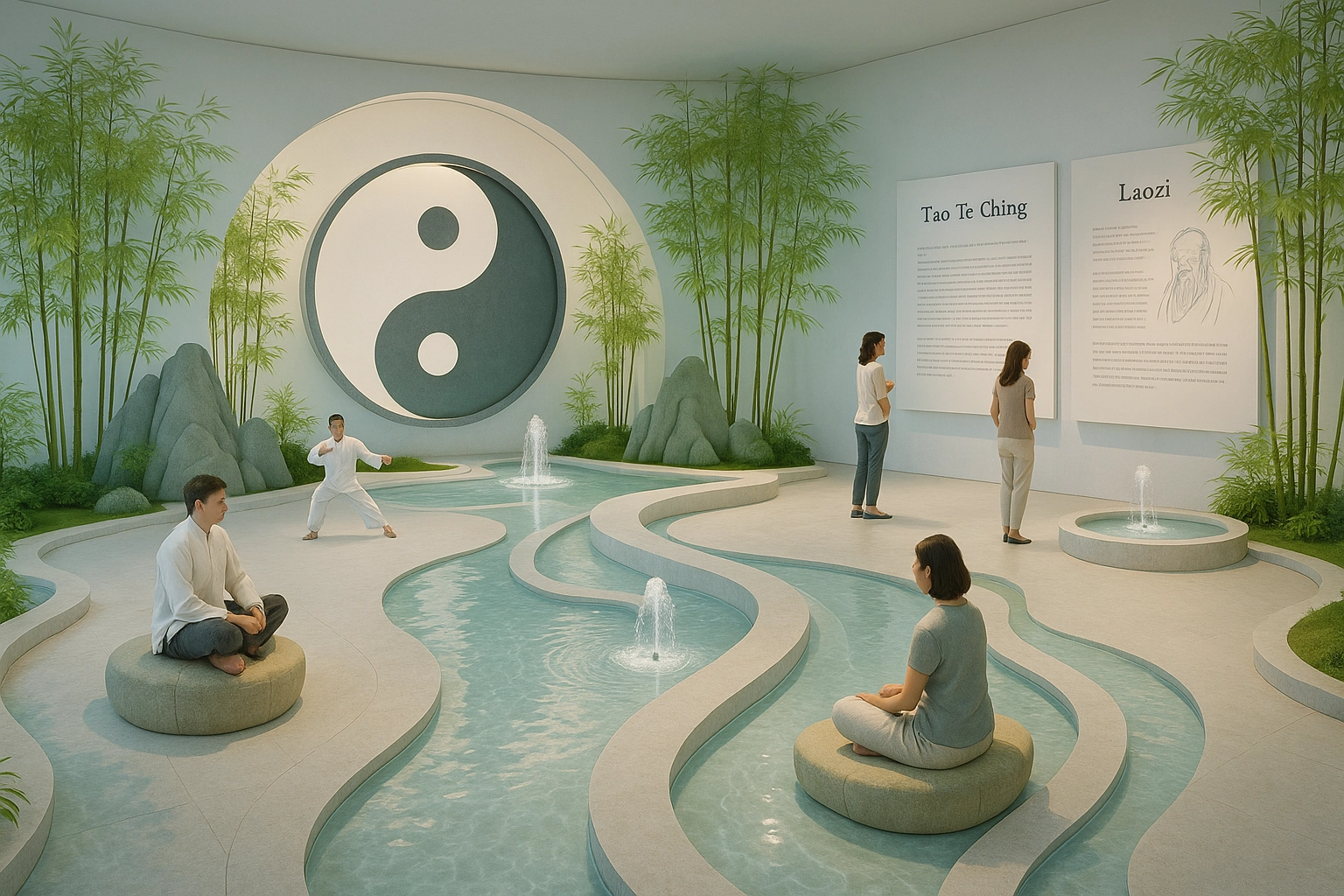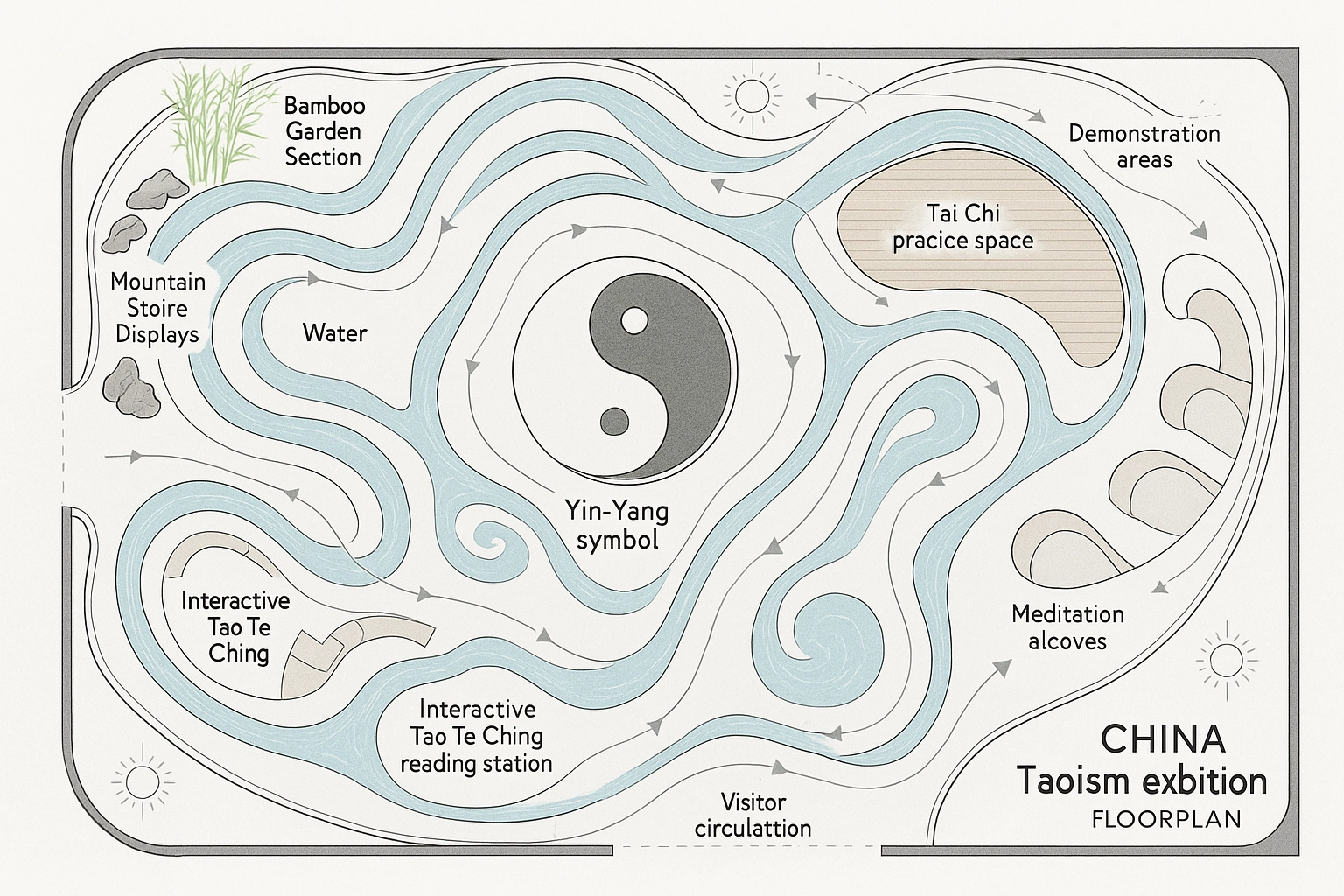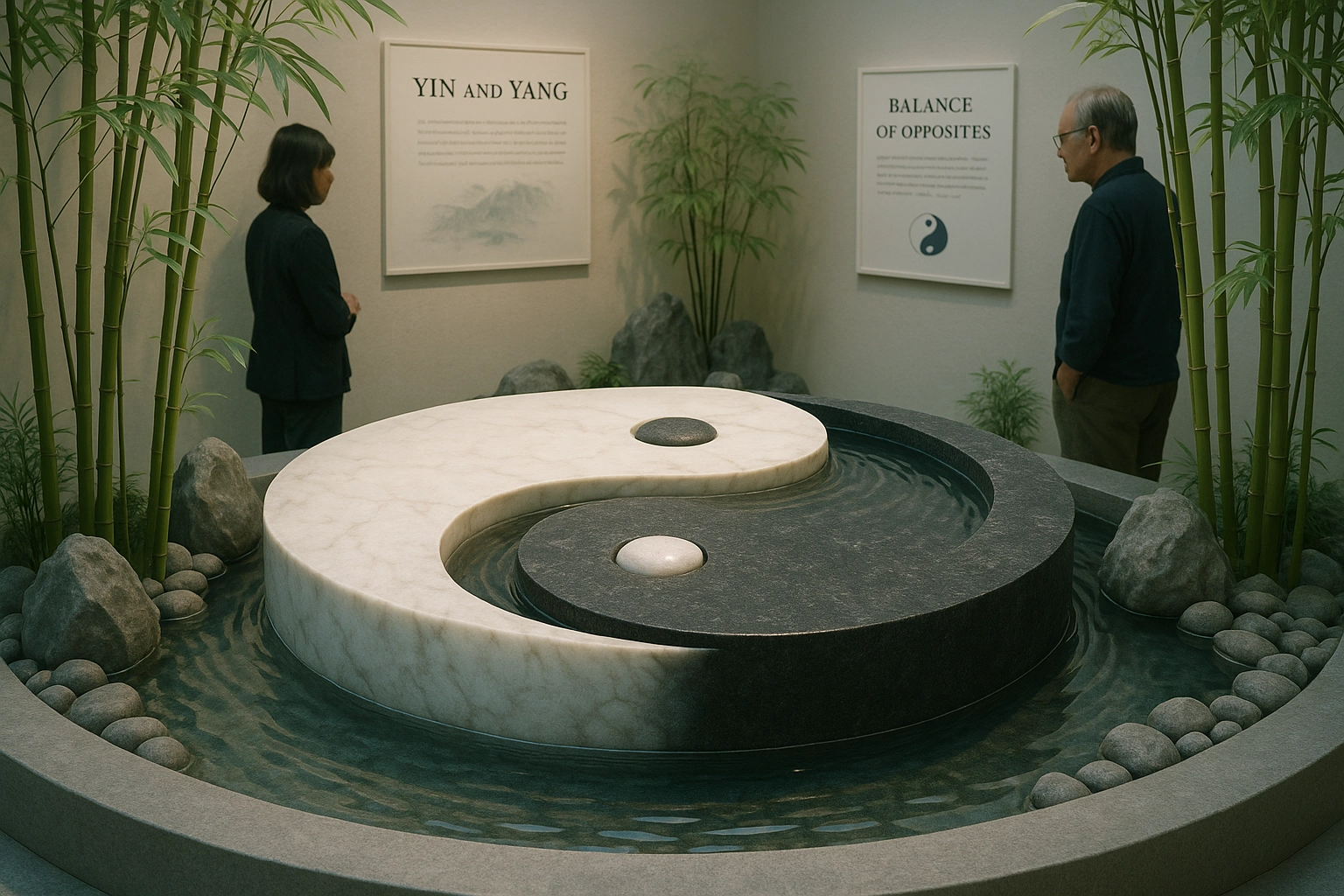Chinese Taoism Exhibition
Discover the ancient wisdom and harmonious philosophy of Chinese Taoism through our immersive exhibition experience
Exhibition Layout & Experience

Exhibition Floor Plan
Interactive layout featuring meditation areas, alchemy displays, and traditional temple space

Main Exhibition Hall
Showcasing Taoist philosophy, ancient texts, and interactive learning stations

Sacred Yin-Yang Garden
Traditional garden design embodying balance and harmony principles of Taoism
Historical Origin
Taoism (Daoism) originated in ancient China, with roots stretching back to the 4th–6th century BCE. Its earliest expressions are attributed to Laozi, a legendary philosopher believed to have lived during the Zhou Dynasty.
Emergence & Development
Taoism began as a philosophy based on Laozi's Tao Te Ching and evolved into an organized religion over centuries. By the Han Dynasty (206 BCE–220 CE), Taoist religious movements emerged, incorporating rituals, alchemy, and beliefs in immortality. Taoism flourished as one of China's "Three Teachings," alongside Confucianism and Buddhism.
Key Figures & Leaders
Laozi (Lao Tzu)
Author of the Tao Te Ching, regarded as the founder of Taoism.
Zhuangzi (Chuang Tzu)
Influential philosopher who expanded on Taoist ideas of spontaneity and naturalness.
Zhang Daoling
Founder of the Way of the Celestial Masters, an early Taoist religious movement.
Lu Dongbin
Legendary immortal and one of the Eight Immortals, key figures in Taoist folklore.
Core Concepts & Beliefs
Tao (The Way)
The source and principle of all existence, an indescribable natural order.
Wu Wei
Effortless action or non-forcing, harmonizing with the flow of nature.
Yin-Yang
Interdependence and balance of opposing forces.
Qi
Vital life force that permeates all living things.
Three Treasures
Compassion, frugality, and humility.
Fundamental Principles
Harmony with Nature
Living in accordance with the Tao and natural rhythms.
Balance
Seeking equilibrium in all aspects of life.
Simplicity
Embracing modesty and reducing desires.
Flexibility
Adapting to change like water or bamboo.
Sacred Symbols
Yin-Yang Symbol
Represents dynamic balance and duality in nature.
Bagua (Eight Trigrams)
Symbolic arrangement used in Taoist cosmology and divination.
Dragon and Tiger
Emblems of power, transformation, and harmony.
Major Rituals & Ceremonies
Daoist Alchemical Practices
Inner alchemy (neidan) for longevity and spiritual realization.
Fasting and Purification Rituals
To align with the Tao and the cycles of nature.
Seasonal Festivals
Lantern Festival, Dragon Boat Festival, and others celebrating nature's cycles.
Temple Offerings and Ancestral Worship
Honoring deities, immortals, and ancestors.
Global Influence & Cultural Impact
Global Influence
Taoism has shaped Chinese culture, art, medicine, and martial arts for millennia. Globally, Taoist philosophy and practices such as Tai Chi, Qigong, and Feng Shui have gained widespread popularity, influencing wellness movements, environmental ethics, and holistic medicine.
Cultural Impact
Taoism contributed to the development of Chinese poetry, painting, and landscape architecture. Its influence can be seen in traditional medicine, dietary practices, and social attitudes toward balance and nature. Taoist thought encourages harmonious coexistence, influencing the cultural identity of China and beyond.
Heritage and Legacy
Taoist heritage is reflected in architecture, literature, festivals, and living traditions. Its emphasis on natural harmony and longevity continues to inspire both spiritual seekers and modern environmental movements.
Important Spiritual Books & Texts
Tao Te Ching
by Laozi
Zhuangzi
by Chuang Tzu
Daozang (Taoist Canon)
An extensive collection of Taoist scriptures
Associated Holy Places & Structures
Wudang Mountains
Renowned center for Taoist practice and martial arts.
Mount Huashan
Sacred mountain with Taoist temples and pilgrimage trails.
Baiyun Guan (White Cloud Temple)
Major Taoist temple in Beijing.
Qingyang Gong (Green Goat Temple)
Important temple in Chengdu.
Memorable Quote
"Nature does not hurry, yet everything is accomplished."— Laozi (Lao Tzu)